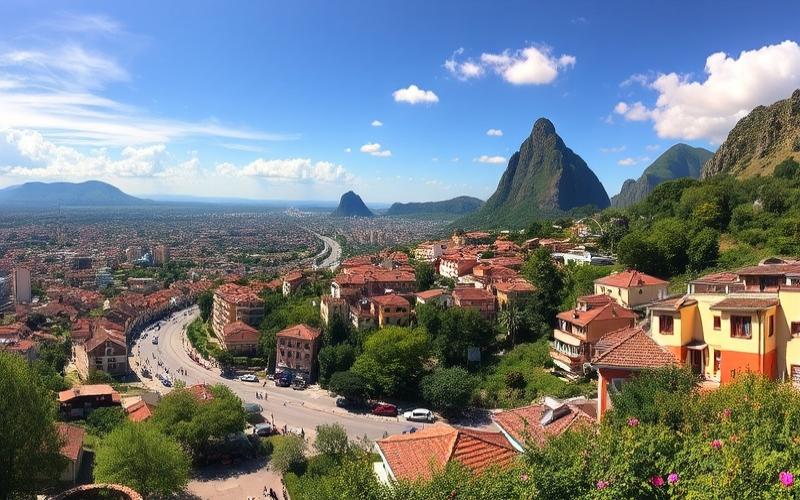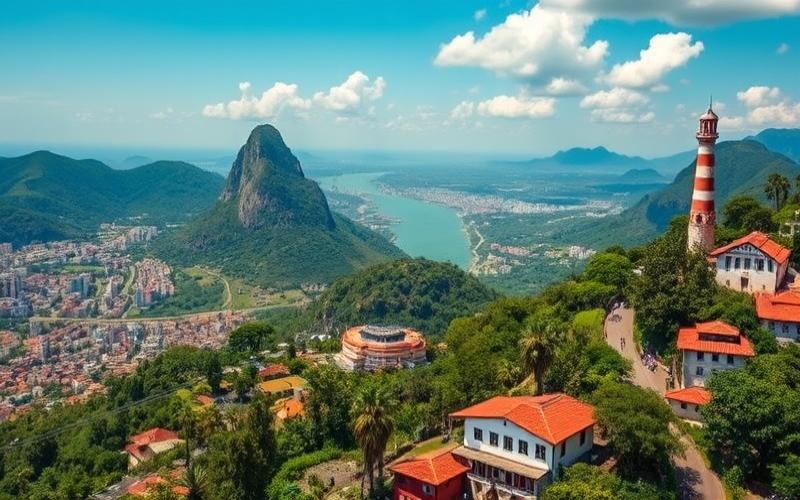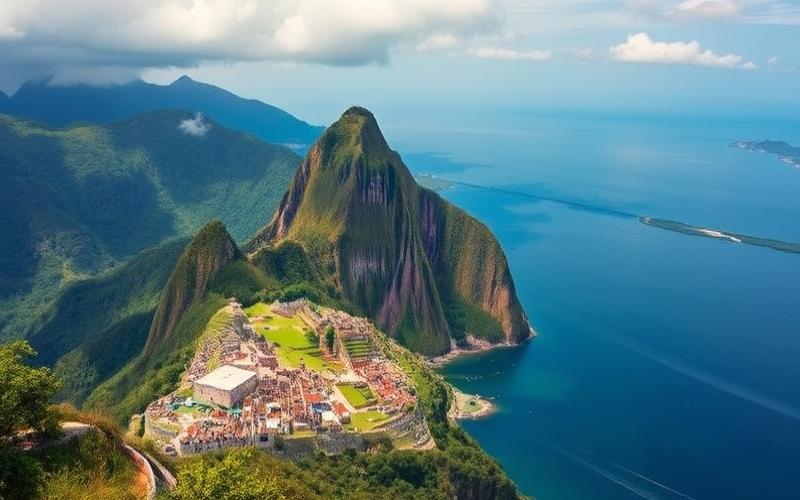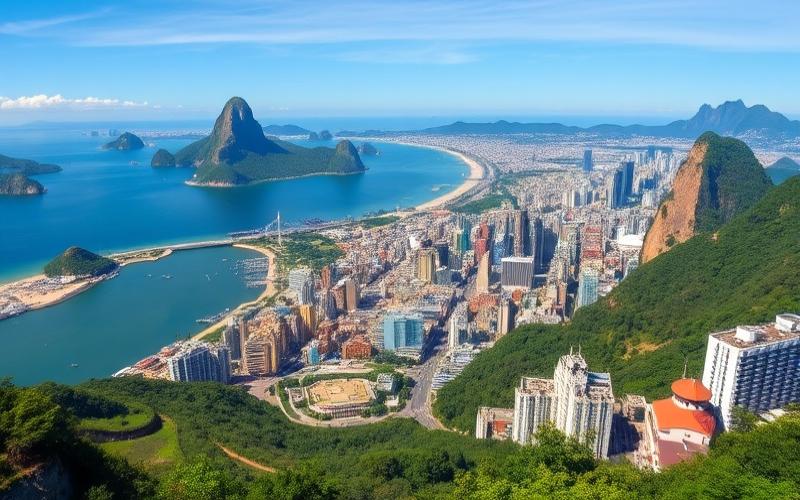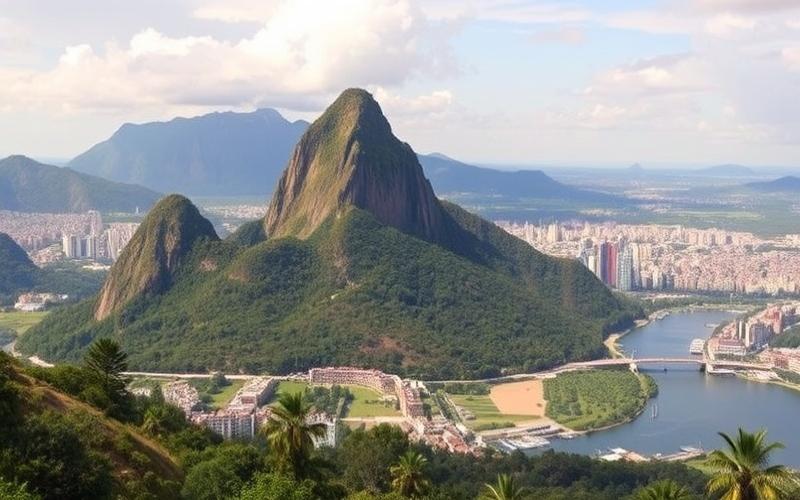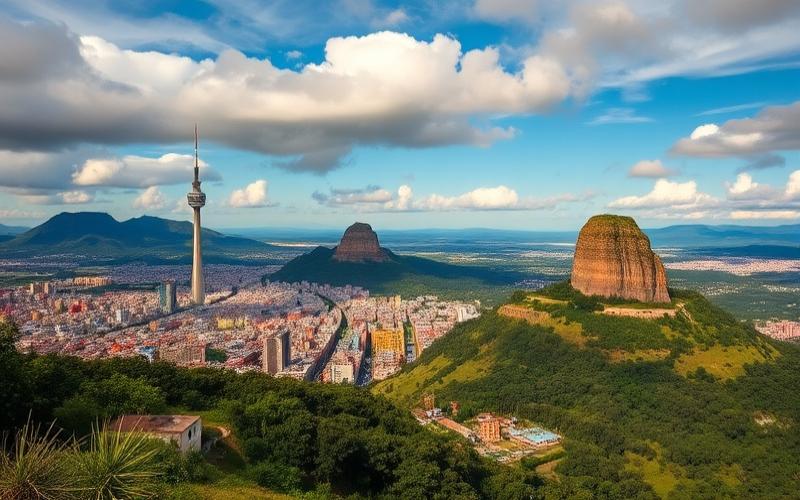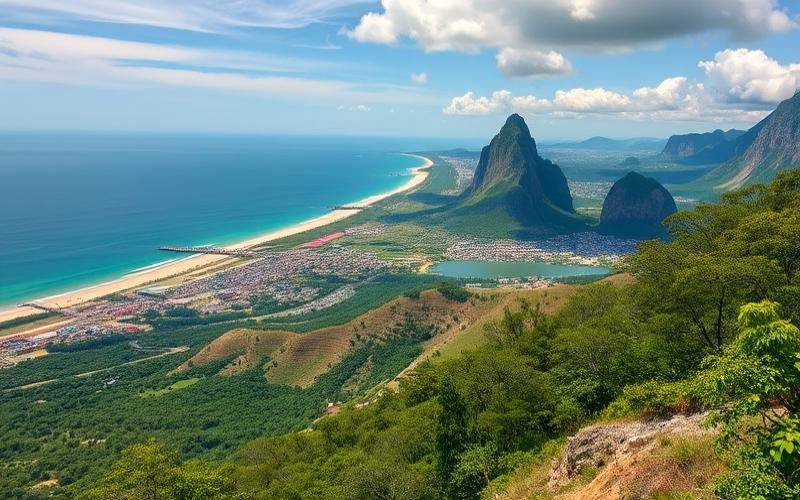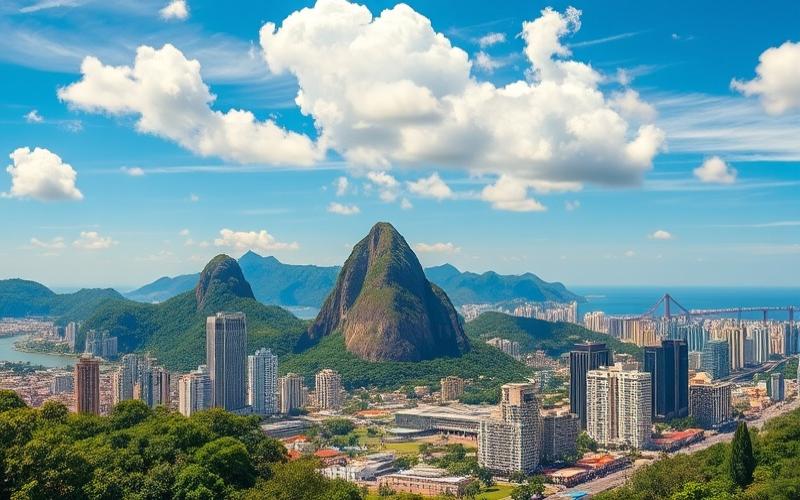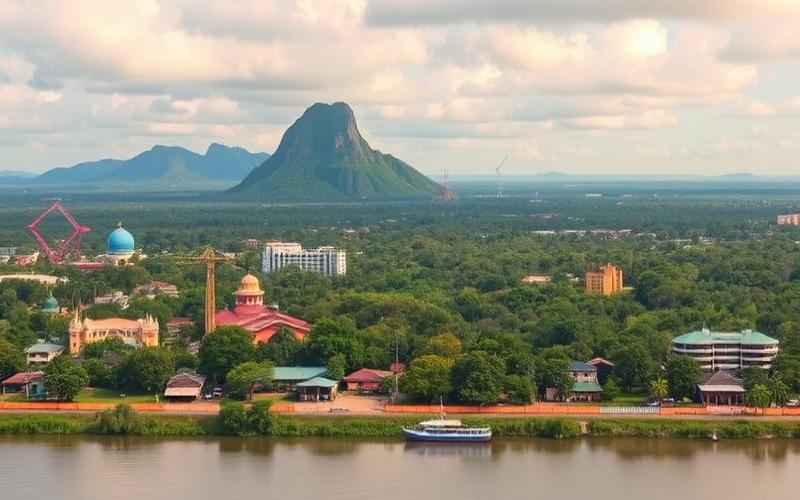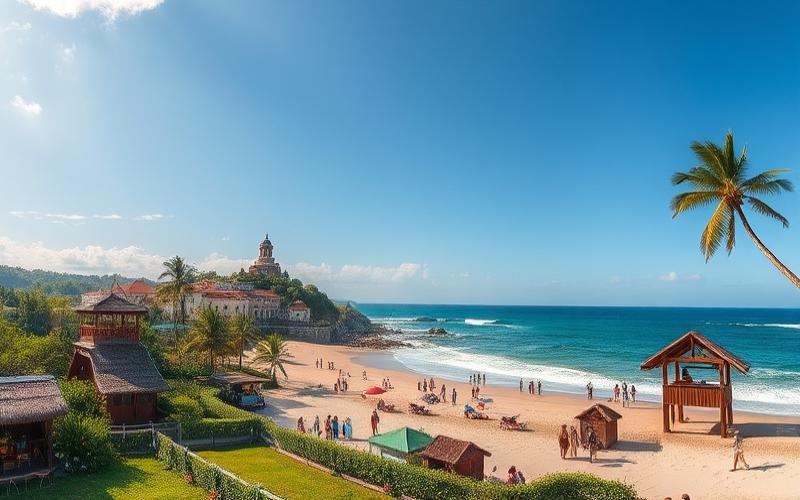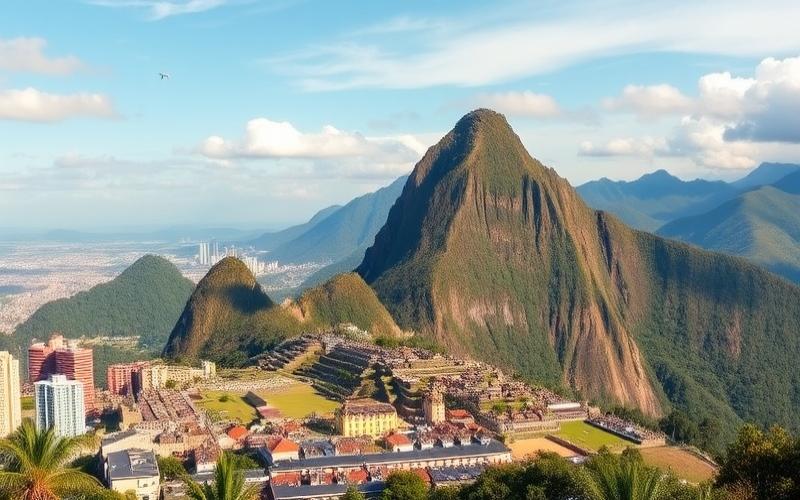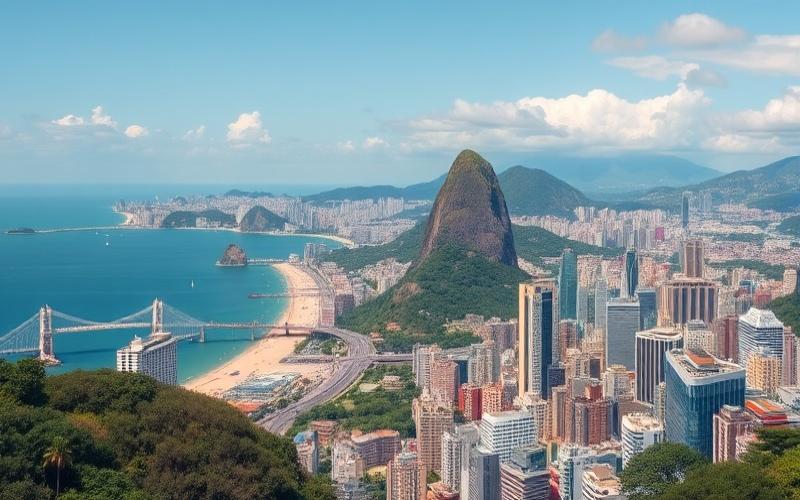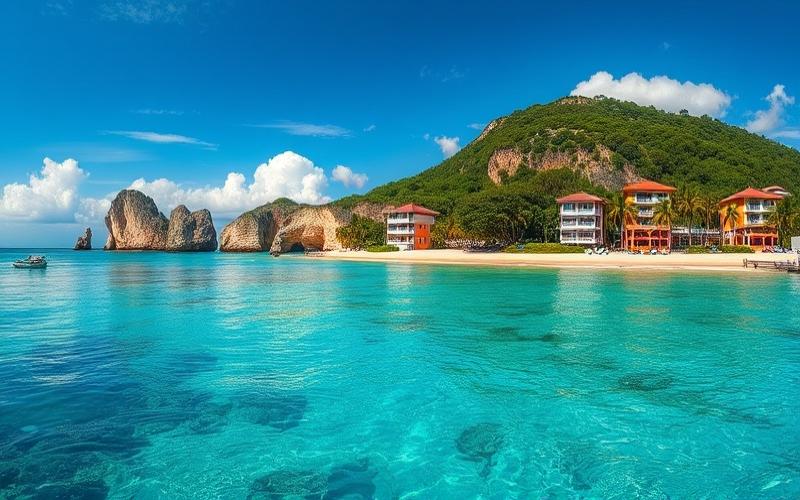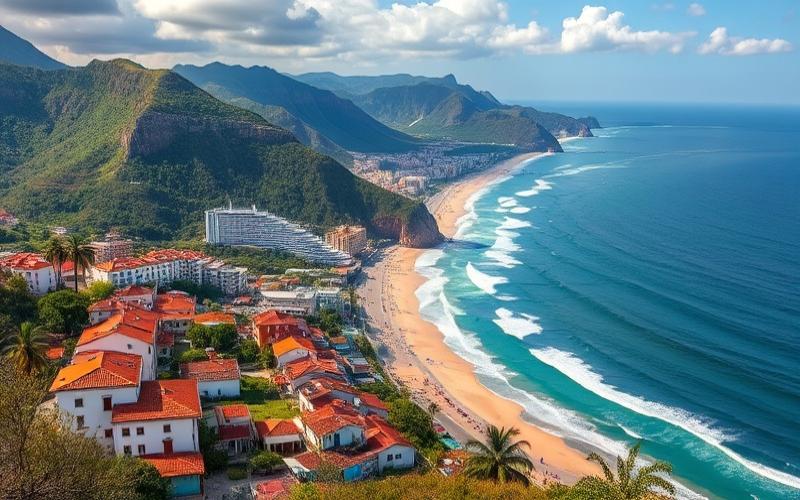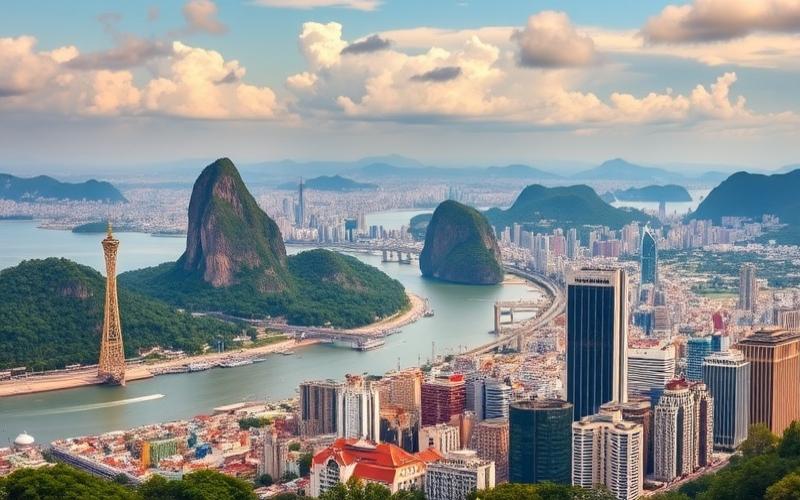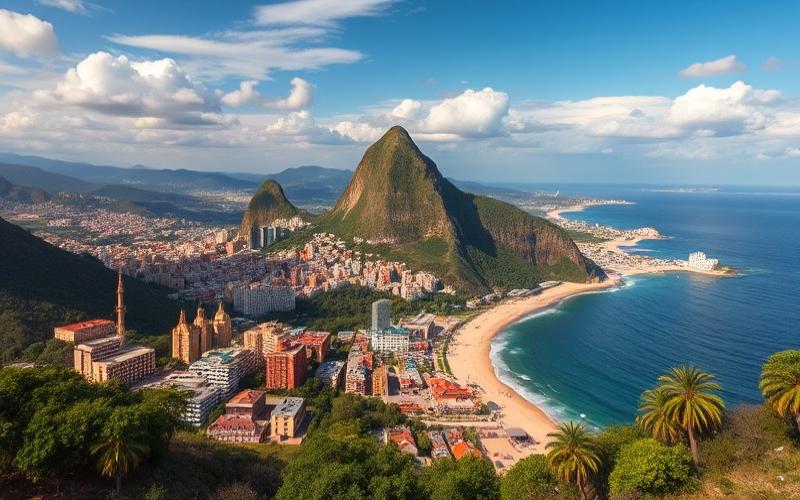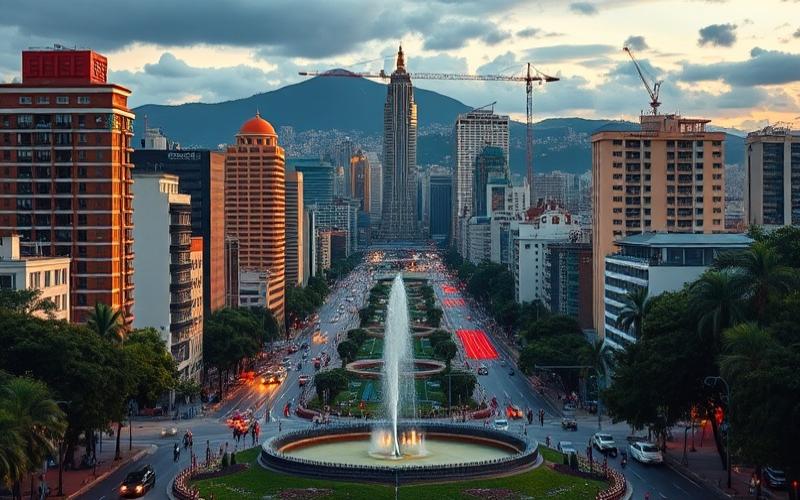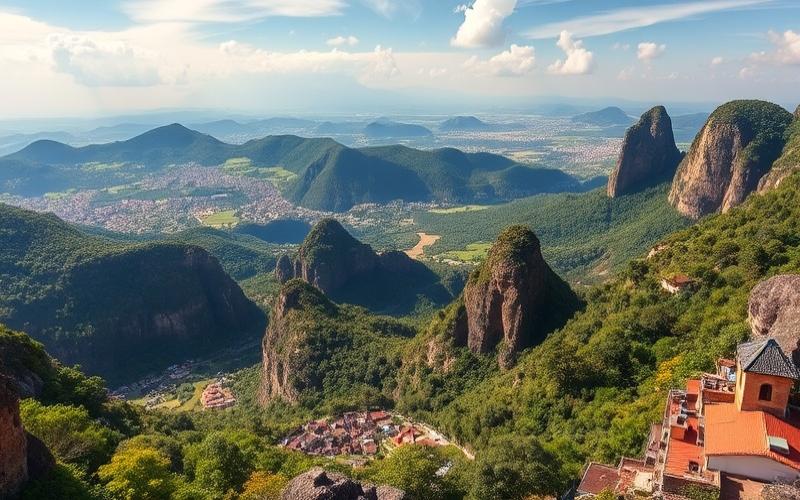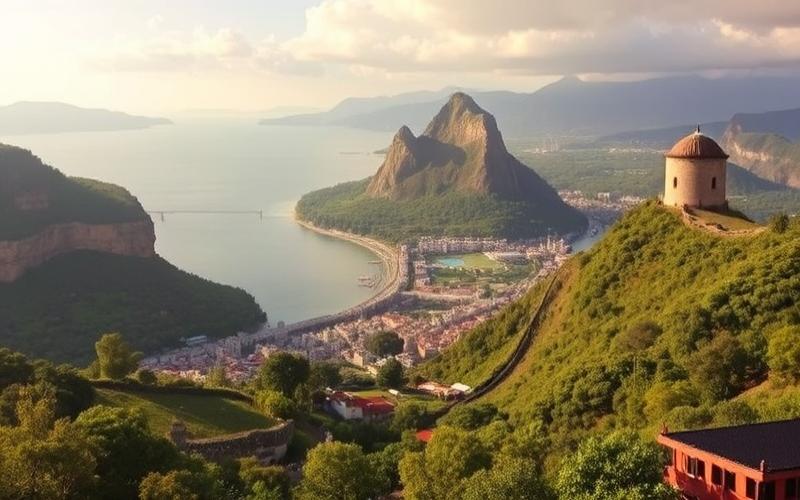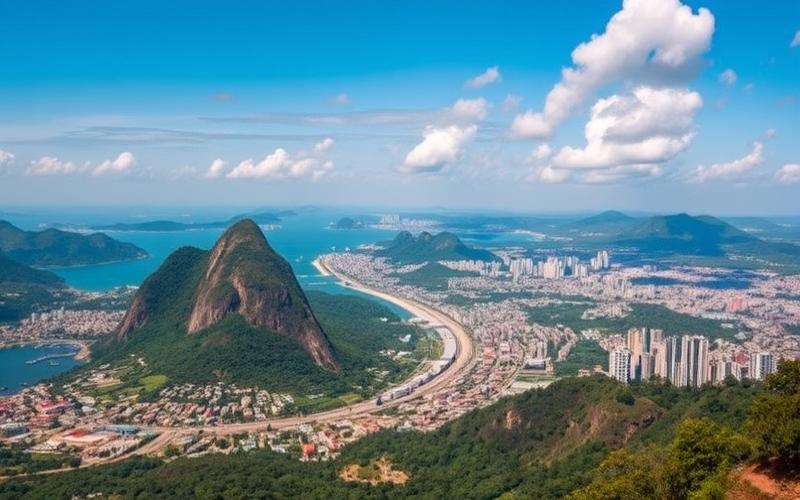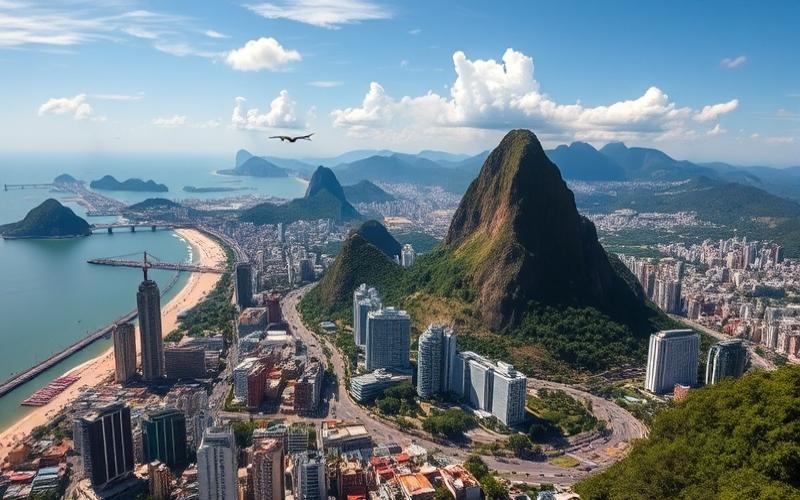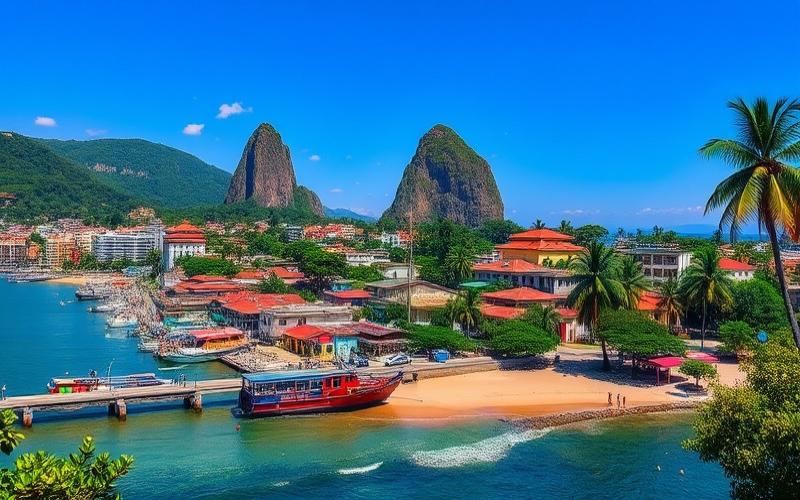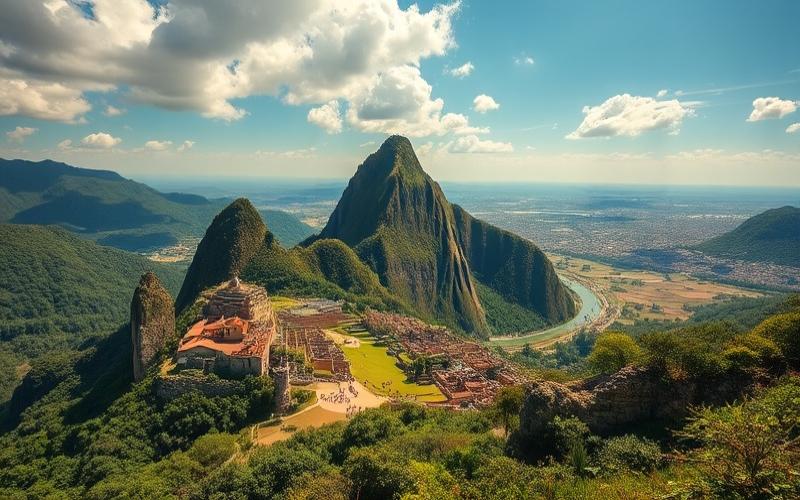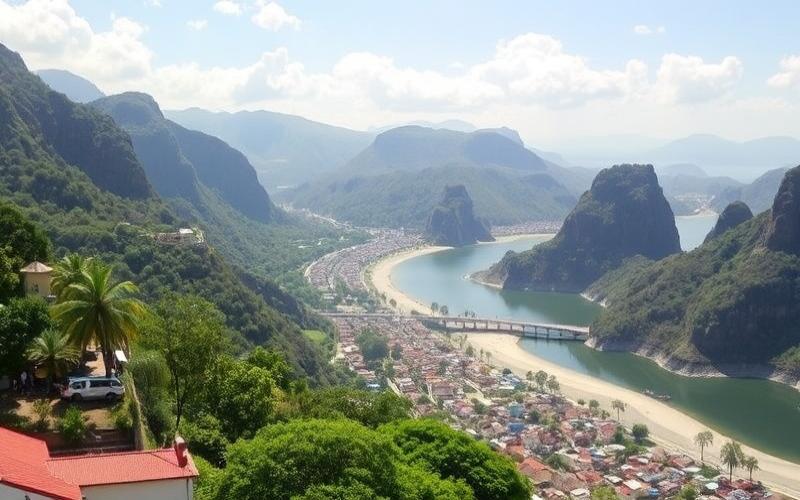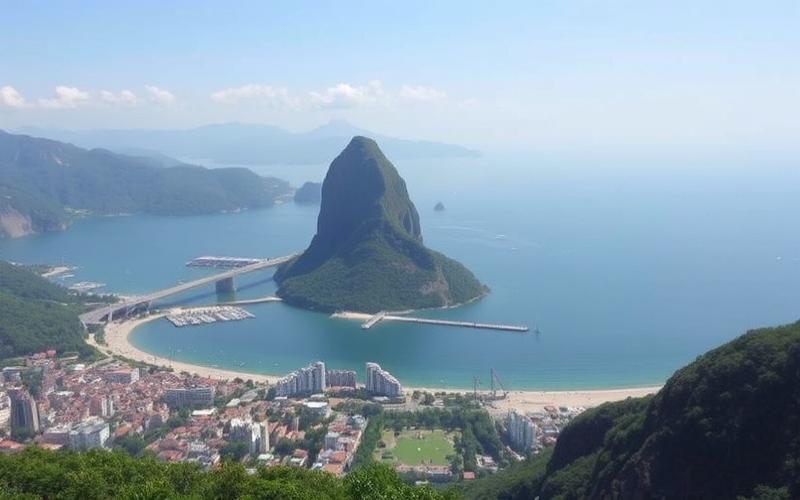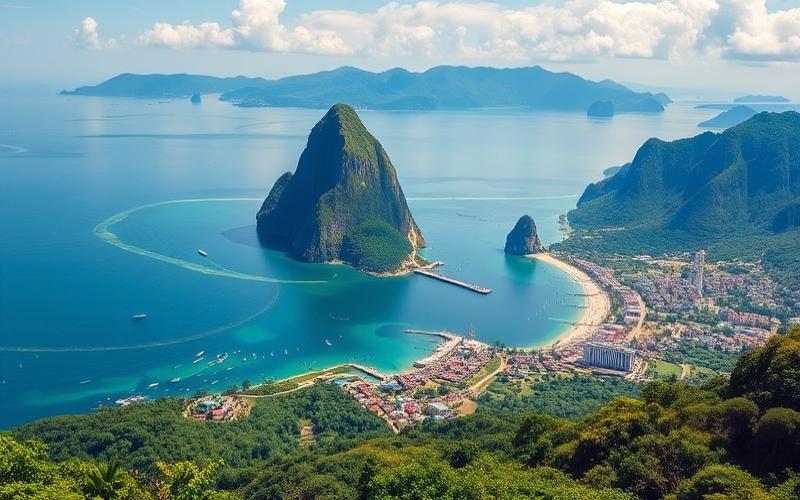
 Published on and written by Cyril Jarnias
Published on and written by Cyril Jarnias
The digital nomad phenomenon has transformed many horizons, and Brazil is no exception to this global trend. With its pleasant climate, breathtaking landscapes, and cost of living often lower than in Western countries, the South American nation is increasingly attracting these remote workers seeking new experiences.
However, this influx is not without consequences for the often already strained local rental market. Coastal cities, in particular, are seeing their rental prices rise, sometimes to the detriment of local residents.
This article explores how this booming lifestyle is reshaping the economic landscape of the Brazilian real estate market while questioning the sustainability of this trend in a context where technological infrastructure plays a crucial role in supporting this transition.
Defining the Digital Nomad Phenomenon in Brazil
Digital nomads are professionals who work remotely (freelancers, entrepreneurs, consultants, or remote employees) without a fixed workplace, as long as they have a computer and an internet connection. In Brazil, this profile was recognized and regulated by the introduction in 2022 of a specific visa (VITEM XIV) allowing residency and remote work for a foreign employer, without a local employment contract, for an initial period of one year, renewable once.
Why Brazil Attracts Digital Nomads
- Dedicated visa since January 2022, facilitating temporary residence for remote workers and freelancers.
- Perceived affordable cost of living in many cities, with access to beaches and a dynamic urban life.
- Ability to work from a great diversity of landscapes: coastlines, forests, mountains, and historic cities.
- Growing nomad community and availability of legal/immigration services for settling and procedures.
Main Regions and Cities for Settlement
- Southeast (Tech and Services Epicenter)
- São Paulo: economic hub, startup ecosystem, dense coworking scene, best international connections.
- Rio de Janeiro: tourist appeal, beaches, creative scene; numerous flexible workspaces.
- Northeast (Coastal Quality of Life)
- Florianópolis is sometimes associated with the South, but nomads also favor coastal cities in the Northeast for the climate and beaches; growing offer of colivings.
- South
- Florianópolis: renowned for its quality of life, tech and surf community, good infrastructure.
- Other Capitals
- Belo Horizonte, Curitiba, Recife, Salvador, Fortaleza: alternatives with lower costs and emerging local scenes.
Digital Infrastructure and Enabling Services
- High-speed internet connection available in large and medium-sized cities; expanding 4G/5G coverage in urban centers.
- Extensive network of coworking spaces and cafes suitable for remote work in metropolises (São Paulo, Rio, Floripa).
- Digitized administrative services: possibility to apply for/regularize the nomad resident status via official platforms (e.g., MigranteWeb) and procedures with the Federal Police for renewal.
- Support ecosystem (lawyers, immigration firms) facilitating the obtention of the VITEM XIV and tax compliance.
Table — Legal Framework and Stay
| Element | Detail |
|---|---|
| Visa Type | VITEM XIV (Digital Nomad) |
| Launch | January 2022 |
| Duration | 1 year renewable for 1 year |
| Employer | Foreign; no formal Brazilian employment |
| Required Proof | Contract/proof of activity and sufficient income |
| Short Entry | Some nationalities exempt for up to 90 days |
| Taxation | Risk of tax residency >183 days/year |
Application of the Definition to the Brazilian Context
The general definition (remote work, mobility, dependence on digital tools) fully applies, with the Brazilian specificity of an explicit migratory framework allowing prolonged stay without a local contract, provided proof of activity and financial means is demonstrated.
Brazil has institutionalized this status through a temporary visa designed for workers whose income comes from abroad, which secures the presence and activity of nomads on-site.
Cultural and Economic Differences Influencing the Experience Compared to Other Countries
Culture
- Strong social capital: conviviality, neighborhood life, events, music, and sports enhance integration but require linguistic adaptation (Portuguese) and adaptation to relational codes.
- More flexible work and life rhythms in some cities; emphasis on sociability and informal interactions, which can influence time management.
Economy and Cost of Living
- Costs generally lower than in major North American or European capitals, but marked variations between neighborhoods and cities; inflation and exchange rates can impact the budget.
- Tech networking opportunities in hubs (São Paulo, Florianópolis) versus more local economies in other regions.
Legal and Tax Framework
- Existence of a dedicated visa with clear procedures and possible local renewal; however, tax residency may apply beyond 183 days with obligations on worldwide income.
- Compared to some countries, Brazil allows leeway to enter and then regularize the situation on-site through established procedures, with legal support available.
Infrastructure and Operational Security
- Very good infrastructure in large cities; notable contrasts in peripheral or rural areas.
- Dense domestic air mobility; favorable time zones for collaboration with the Americas and Western Europe (depending on the season).
Practical Lists — Factors to Consider
- Choose a neighborhood with reliable internet, nearby coworking, and good transport links.
- Anticipate taxation if stay >183 days and organize proof of foreign income.
- Plan for international health insurance and a digital security strategy (VPN, backups).
- Learn the basics of Portuguese for social and administrative integration.
- Compare cities based on the cost/quality of life/community ratio (e.g., São Paulo vs. Florianópolis vs. Recife).
Key takeaway: Brazil combines a dedicated migratory framework, urban and natural diversity, and a growing community, offering digital nomads an attractive base, provided tax aspects, location, and cultural integration are planned.
Good to Know:
Digital nomads, workers who use technology to perform their activities from anywhere, find Brazil an attractive destination thanks to its cultural diversity, varied landscapes, and cost of living often lower than in developed countries. Brazil is particularly appealing for its dynamic regions like São Paulo, known for its modern coworking spaces, and coastal cities like Florianópolis and Salvador that offer a pleasant living environment with good internet connections. The Brazilian government has also implemented digital infrastructure to support this lifestyle, such as the expansion of high-speed internet and shared workspaces. However, digital nomads must contend with cultural and economic differences, such as the language barrier and administrative formalities that differ from those encountered in Asia or Europe, which can sometimes complicate their settlement and integration.
The Rise of Coliving: A Solution for Digital Nomads
Coliving has become popular among digital nomads in Brazil because it combines accessibility, flexibility, and community: all-inclusive rents with furnished rooms, individual leases, and options more affordable than traditional alternatives; easily adaptable short to medium-term stays; and integrated social life with roommates of similar profiles, fostering mutual aid and collaborations. The appeal is reinforced by the country’s Digital Nomad Visa (legal stay up to 1 year renewable, no local taxes on foreign income), which reduces administrative friction and encourages longer stays in cities like Rio, São Paulo, and Florianópolis.
Coliving Spaces Meet Key Needs of Digital Nomads:
- Internet Connectivity: high speeds in large cities and nomad hubs; many colivings advertise at least 300 Mbps, suitable for video calls and cloud work, with a recommendation for a local SIM (TIM, Claro) as backup.
- Workspaces: dedicated desks, ergonomic chairs, quiet zones, and multiple work environments; some places have coworking floors reserved for residents.
- Networking Opportunities: almost daily activities and events, community rituals, and animations that facilitate integration, joint projects, and professional mutual aid.
Locations Where Coliving is Emerging and Local Dynamics:
- São Paulo: wide and structured offer, cost-effective alternative to dorms, individual leases, included services; diverse professional community driven by tech, design, and marketing.
- Rio de Janeiro: international appeal, creative scenes, and surf; colivings near beaches and coworking hubs enhance networking and the local economy.
- Florianópolis: growing nomad hub, good internet infrastructure and quality of life; colivings oriented towards remote work with dedicated spaces.
- Other Emerging Cities: Curitiba, Belo Horizonte, Recife/Porto de Galinhas, and Salvador are beginning to appear on coliving platforms, attracting a diffuse flow of remote workers and diversifying demand outside the capitals.
Effects on the Local Rental Market:
- Rise of an all-inclusive furnished offer and flexible leases oriented towards 1–6 month stays, influencing the standards of traditional urban rentals.
- Potential rental price adjustments in sought-after neighborhoods, especially near beaches and coworking poles, with a premium on properties suitable for remote work (fast Wi-Fi, desks, common areas).
- Professionalization of cohabitation: background checks by some hosts and profile matching, stabilizing cohabitation and reducing turnover.
Economic and Social Benefits for Host Cities:
- Increased local spending on dining, coworking cafes, mobility, and services, supporting SMEs and local employment.
- Longer stays thanks to the nomad visa and coliving flexibility, smoothing out tourist seasonality.
- Skill transfer and community creation: workshops, meetups, collaborations between residents and local entrepreneurs energize the innovation ecosystem.
- Upgrading of infrastructure: sustained demand for reliable internet and work amenities accelerates private investment in broadband and hybrid living-working spaces.
| Key Need of Digital Nomads | Typical Response from Brazilian Colivings |
|---|---|
| Accessibility | Furnished rooms, all-inclusive, individual leases, private/shared options |
| Flexibility | Modulable durations, simplified entry/exit, adaptation to workations |
| Community | Regular events, activities, rapid social networking |
| Internet | High-speed in urban areas and hubs; SIM backup recommendations |
| Workspaces | Dedicated desks, ergonomic chairs, quiet zones/coworking |
| Legal Framework | Nomad visa: 1-year renewable stay, no local taxes on foreign income |
- Points to consider:
- Uneven connection quality in rural areas; plan for backup solutions.
- Variability in safety depending on neighborhoods; favor reputable areas and ride-hailing services.
Coliving in Brazil is establishing itself as a comprehensive solution for digital nomads: it reduces costs and friction, offers high-performance work environments, and catalyzes active communities, while generating tangible economic and social benefits for host cities.
Good to Know:
Coliving has become a popular solution for digital nomads in Brazil due to its financial accessibility, contractual flexibility, and the dynamic community it offers. These spaces provide reliable internet connectivity and equipped coworking areas, essential for remote work. Cities like São Paulo, Rio de Janeiro, and Florianópolis are seeing the emergence of these coliving spaces, often integrating networking events to foster professional collaboration. This trend positively impacts the local rental market by revitalizing neighborhoods and attracting a young, international population. Economically, it stimulates local businesses, while socially, it encourages cultural diversity and a sense of community belonging that benefits both residents and newcomers.
The Impact of Digital Nomads on the Brazilian Rental Market
The influx of digital nomads to Brazil has increased the demand for medium-term furnished rentals in major metropolises (Rio de Janeiro, São Paulo, Florianópolis) and beach destinations, particularly since the introduction of a specific “digital nomad” visa renewable for one year which has facilitated their settlement and stimulated the high-end and intermediate rental market.
Effects on Supply and Demand:
- Demand: increase in searches for apartments with workspaces, high-speed internet, and flexible contracts, driven by the arrival of expatriate-remote workers encouraged by the nomad visa.
- Supply: specialized agencies and the “luxury/serviced” segment have expanded their portfolio in Rio and tourist hubs to capture this international clientele.
Positive Effects:
- Revitalization of coastal and central neighborhoods through the renovation of properties intended for furnished rentals in Rio (e.g., areas near beaches and tourist poles), and upgrading of real estate services for remote workers.
- Attraction of international real estate investments in the premium segment, consolidating agency activity and rental turnover in attractive cities.
Negative Effects:
- Upward pressure on rents for well-located and furnished properties, access tensions for local households in the neighborhoods most in demand by nomads and expatriates.
- Risk of substitution of the traditional residential rental stock by furnished products with flexible durations, concentrated in areas with high tourist demand.
Policies and Adaptations:
- Public Policy: implementation of a digital nomad visa allowing legal residency and remote work in Brazil for extended periods, which has structured a more stable international demand for rentals.
- Real Estate Agencies: development of offers dedicated to nomads (simplified leases, concierge, guaranteed internet, ergonomic furniture) and targeting of “move-in ready” properties in metropolises and beach resorts.
Statistics and Trend Framing:
- Global Context: approximately 40 million digital nomads worldwide in 2024, fueling demand pressure on urban markets in countries with attractive visas like Brazil.
- Brazil: launch of the nomad visa in 2022, with the possibility of a one-year renewable stay, catalyzing interest in furnished rentals and premium rental investment in Rio and other hubs.
Table — Main Observed Impacts
| Dimension | Major Cities (Rio, São Paulo) | Beach and Popular Destinations |
|---|---|---|
| Demand | Rise in furnished units with desks, flexible contracts | High seasonality extended by medium stays |
| Rental Prices | Upward pressure on well-connected segments | Increase on waterfront and neighborhoods near hubs |
| Supply | More luxury/serviced products adapted to remote work | Conversion of housing to tourist furnished units |
| Policies/Adaptations | Nomad visa attracts international demand | Local agencies structure “nomad-ready” offers |
Points of Vigilance and Balancing Avenues:
- Local monitoring of rents in areas with high concentration of furnished units to avoid displacement of middle-income households, drawing inspiration from international practices for regulating tourist rentals.
- Incentives for energy renovation and creation of intermediate rental stock to absorb nomad demand without depleting supply for residents.
- Coordination between municipalities, agencies, and owners for connectivity standards and contract flexibility aligned with remote work, while preserving residential mixity.
The main driver of the “digital nomad” effect in Brazil is regulatory accessibility via the dedicated visa, which has legitimized and supported the rise of an international medium-term rental demand in urban and tourist hubs.
Good to Know:
The influx of digital nomads to Brazil has significantly altered the rental market, especially in large cities like São Paulo and Rio de Janeiro, as well as in sought-after destinations such as Florianópolis. The increased demand has led to rising rents, with some neighborhoods seeing their prices double in a few years, creating tension for local residents. However, this dynamic has also revitalized areas that were once neglected, thereby stimulating the local economy. Brazilian real estate agencies are adapting their offers to include short-term rentals with included services to meet these new needs. In response, the government has introduced policies favoring greater market regulation, although the impact of these measures remains to be assessed. According to the latest data, the rental market has seen a 15% increase in average prices since 2020, highlighting the need for authorities to balance international attractiveness and accessibility for locals.
The Challenges and Opportunities of High-Speed Wi-Fi for Digital Nomads
Digital nomads in Brazil face challenges accessing reliable high-speed Wi-Fi, particularly in rural areas and less developed regions of the North and interior, where connectivity is slower and outages more frequent, while large cities in the South and Southeast generally offer better performance and more options (coworkings, well-equipped hotels).
Main Challenges
- Variability in network quality between regions: more reliability and speed in Rio, São Paulo, or Florianópolis, more instability in remote or northern areas.
- Wi-Fi and 4G sometimes unreliable, requiring actively “searching” for places with good connection even in the city.
- Dependence on workaround solutions (coworkings, high-end hotels, universities, upgrades from the landlord, portable hotspots).
Effects on Productivity and Professional Activities
- Loss of time due to outages/latencies, delaying video conferences, deployments, cloud syncs, and large transfers.
- Need for an adaptation phase (finding stable places) which delays ramping up after arrival.
- Additional costs (coworking, dedicated equipment, “pocket Wi-Fi” rental) to secure service quality.
Opportunities to Improve Infrastructure in Brazil
- Public investments: extension of high-speed access in rural and isolated areas via national programs (e.g., initiatives like “Internet para Todos”) and satellite/terrestrial deployments over a multi-year horizon.
- Public-private partnerships aimed at extending coverage and reducing costs for end users.
- Growing ecosystem in large cities: multiplication of “laptop-friendly” cafes and high-speed, private, well-equipped coworking spaces, facilitating business continuity.
Expected Impact of Better High-Speed Wi-Fi
- Enhanced attractiveness of Brazil for digital nomads thanks to faster, affordable, and ubiquitous connectivity in urban and tourist hubs.
- Longer stays and broadening of destinations beyond capitals if secondary areas gain reliability, reducing operational risk for remote workers.
| Effect on Attractiveness | Mechanism | Probable Consequences |
|---|---|---|
| Greater national reliability | Network capillarity + public initiatives | Growth in remote worker flow to new cities |
| Better quality in cities | High-speed coworkings and cafes | Denser nomad communities, positive word-of-mouth |
| Decreasing costs | PPPs and increased competition | Accessibility for junior/freelance profiles |
Influence on the Rental Market
- Properties with dedicated fiber, guaranteed high speeds, UPS/4G-5G backup, and meshed Wi-Fi coverage become more desirable among digital nomads seeking service continuity.
- Development of hybrid coliving/coworking offers and valuation of housing explicitly displaying speed tests, connection redundancy, and workspaces.
- In neighborhoods with high density of remote workers, rental demand concentrates on “work-ready” units, supporting higher rents and more stable occupancy.
Best Practices to Mitigate Current Challenges
- Choose neighborhoods and accommodations close to major ISPs and coworkings; ask the landlord for a recent speed test.
- Plan a backup solution: pocket Wi-Fi/4G-5G router, multi-operator SIM cards, and power backup (UPS).
- Negotiate an internet upgrade included in the lease or via the owner.
Good to Know:
Digital nomads in Brazil often face challenges related to access to reliable high-speed Wi-Fi, particularly in rural or less developed areas, which can hinder their productivity and professional activities. However, opportunities are emerging to improve internet infrastructure, thanks to growing investments in telecommunication technologies and various government initiatives. A significant improvement in connectivity could not only strengthen Brazil’s attractiveness as a preferred destination for digital nomads but also influence the rental market, making well-connected housing more desirable; for example, cities like São Paulo and Rio de Janeiro could see an increase in demand for properties offering excellent internet connection, thus creating new economic dynamics.
Disclaimer: The information provided on this website is for informational purposes only and does not constitute financial, legal, or professional advice. We encourage you to consult qualified experts before making any investment, real estate, or expatriation decisions. Although we strive to maintain up-to-date and accurate information, we do not guarantee the completeness, accuracy, or timeliness of the proposed content. As investment and expatriation involve risks, we disclaim any liability for potential losses or damages arising from the use of this site. Your use of this site confirms your acceptance of these terms and your understanding of the associated risks.


